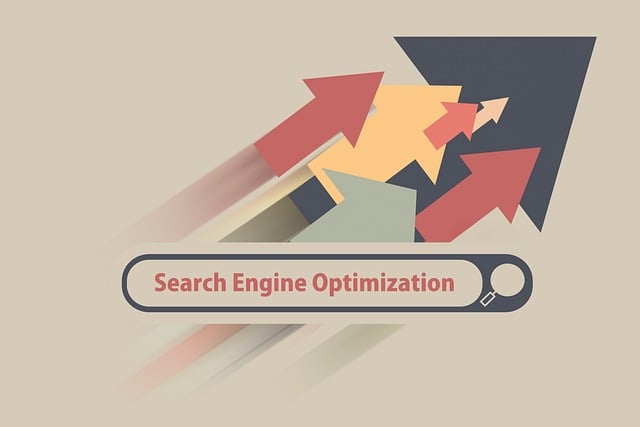Improving organic search rankings requires a multifaceted approach. Website owners must optimize content quality, site structure, loading speed, and mobile-friendliness while implementing technical SEO strategies like meta tag optimization and structured data markup. Keyword research is vital for aligning content with user intent, and on-page SEO ensures high-quality, engaging content with relevant keywords. Off-page strategies, including guest blogging and social media engagement, build high-quality backlinks. Technical SEO optimizes site accessibility and indexing, while a focus on User Experience (UX) and mobile optimization is crucial for Google's ranking algorithms. Continuous monitoring using SEO tools and adapting to algorithm updates are key to maintaining and improving organic search rankings.
Looking to boost your website’s visibility and attract more organic traffic? Understanding and optimizing for search engine results pages (SERPs) is key. This comprehensive guide dives into the essential components of SEO, designed to help you improve organic search rankings. From deciphering the basics of organic search rankings to crafting compelling content, building quality backlinks, ensuring technical integrity, enhancing user experience, and continuous analysis—each step offers strategic insights for maximizing online exposure.
Understanding Organic Search Rankings: The Basics

Organic search rankings refer to the positions websites hold in search engine results pages (SERPs) for specific keywords or queries. It’s a fundamental aspect of online visibility, as higher rankings often translate to more organic traffic and increased brand awareness. To improve organic search rankings, understanding how search engines like Google evaluate websites is crucial. This involves analyzing factors such as relevant content, website authority, user experience, and technical SEO optimizations.
Search engines employ complex algorithms to determine which pages are most valuable and relevant to users’ queries. They consider the overall quality and relevance of content, site structure, loading speed, mobile-friendliness, and a variety of other signals to provide the best possible results. By focusing on creating high-quality, keyword-rich content, optimizing meta tags, ensuring fast page speeds, and implementing structured data markup, website owners can enhance their chances of securing better organic search rankings over time.
Keyword Research: Unlocking Your Target Audience

Keyword research is a crucial step in optimizing your website for search engines, ultimately aiming to improve organic search rankings. By understanding your target audience’s language and needs, you can identify relevant keywords that reflect their search queries. This process involves exploring various tools and techniques to uncover a rich set of keywords—from high-volume, broad terms to more niche, long-tail options.
The goal is to match your content with the intent behind these keywords, ensuring it provides value to users searching for related information. Incorporating targeted keywords naturally within your web pages, from titles and headings to meta descriptions and body text, signals to search engines that your content is relevant, enhancing its chances of appearing higher in search results.
On-Page SEO Optimization: Crafting High-Quality Content

Optimizing your on-page SEO is a strategic approach to elevate your website’s visibility in search engine results pages (SERPs). One of the key aspects of this strategy involves crafting high-quality content that not only engages but also aligns with your target audience’s search intent. When you create valuable, relevant, and informative content, it naturally attracts backlinks from other reputable sources, enhancing your site’s authority and credibility in the eyes of search engines like Google.
Focusing on keyword optimization within this content is another crucial element. By seamlessly integrating keywords that your target audience uses when searching for products or services related to your niche, you can improve organic search rankings significantly. Ensure these keywords appear in your titles, headings, meta descriptions, and throughout the body of your web pages while maintaining a natural reading flow. This balance between optimization and readability is essential to capture both search engine algorithms’ attention and keep visitors engaged.
Off-Page SEO Strategies: Building Quality Backlinks

Off-page SEO involves strategies focused on earning high-quality backlinks from reputable websites, which are crucial for improving organic search rankings. Building these links is an art and science, requiring a strategic approach to attract and secure valuable backlinks that signal to search engines your website’s authority and relevance. One effective method is guest blogging, where you contribute informative content to popular blogs in your industry, earning a link back to your site. This not only exposes your brand to a new audience but also establishes your expertise.
Additionally, leveraging social media platforms can significantly enhance off-page SEO efforts. By sharing valuable content and engaging with influencers and potential backlinks sources, you increase the visibility of your website. Effective social media promotion can lead to more mentions and links, further strengthening your online presence and contributing to a robust backlink profile—a key factor in achieving better organic rankings.
Technical SEO: Ensuring Your Website's Performance

Technical SEO plays a pivotal role in enhancing your website’s visibility and ultimately, its improve organic search rankings. It involves optimizing the behind-the-scenes aspects of your site to ensure it’s accessible and effectively indexed by search engines. This includes ensuring fast loading times, implementing structured data markup for better understanding of content, creating XML sitemaps to help search engines navigate your site, and eliminating any broken links or 404 errors that could hinder user experience.
A well-optimized website with robust technical SEO practices allows search engine crawlers to efficiently access and process your page content, leading to higher rankings over time. By addressing these technical elements, you lay the foundation for a successful long-term strategy aimed at driving more organic traffic to your site.
User Experience (UX) and Mobile Optimization

In today’s digital landscape, User Experience (UX) is a cornerstone for improving organic search rankings. Google prioritizes websites that offer seamless navigation, fast loading times, and intuitive design, ensuring users have a positive experience from their initial visit to subsequent returns. A well-optimized UX not only keeps visitors engaged but also encourages them to explore more pages, thereby increasing time spent on site – a signal highly valued by search engines.
Mobile optimization is another critical aspect that cannot be overlooked. With the majority of internet traffic now coming from mobile devices, it’s essential for websites to be responsive and fully functional across all screen sizes. Google’s Mobile-First Indexing means that the mobile version of your site is used to determine its rankings. Therefore, optimizing for speed, ease of interaction, and accessibility on mobile phones should be at the forefront of any SEO strategy aiming to enhance organic search rankings.
Continuous Monitoring and Analysis for Improvement

Continuous monitoring and analysis are essential components in the quest to Improve Organic Search Rankings. By leveraging robust SEO tools, businesses can track key metrics such as click-through rates (CTR), bounce rates, and time spent on page. Regularly reviewing these insights allows for data-driven decisions that directly impact optimization strategies. For instance, identifying underperforming pages or keywords with low engagement signals can guide content updates and targeted link building efforts.
This ongoing process ensures that SEO strategies remain agile and responsive to the dynamic nature of search algorithms. Staying abreast of algorithm updates from Google and other search engines is crucial. Adapting to these changes promptly can prevent rankings setbacks and keep websites ahead of the competition. Through continuous monitoring and analysis, businesses can refine their approach, ultimately enhancing their Improve Organic Search Rankings over time.
